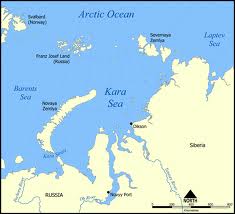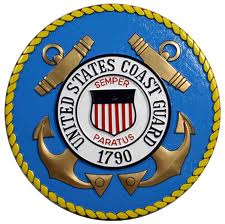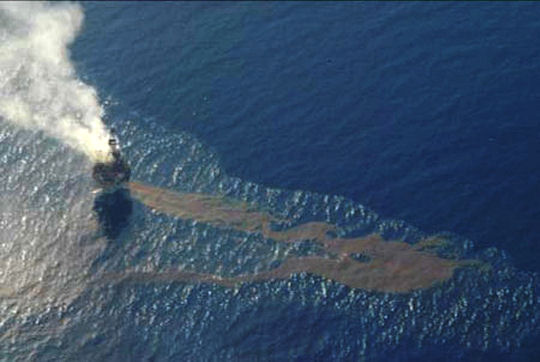|
|
|
|
|
|
|
|
No Arctic-science events are announce for today.
|
Media
Tiny Fine Particles of Global Impact- Radiocarbon Reveals the Origin of Black Carbon. A technical breakthrough was achieved in the source determination of very small carbon samples at the Accelerator Laboratory and the Laboratory of Chronology of the University of Helsinki. The development work is essential in climate research as it facilitates disentangling the origin of black carbon particles. The ratio of modern biomass vs. fossil material present in any carbon containing sample can be determined by radiocarbon dating with a particle accelerator. The amount of the radioactive isotope of carbon (14C, radiocarbon) is halved every 6,000 years, making fossil material entirely free of it. Phys.org
 Northern Barents Sea Warms Dramatically. Northern Barents Sea Warms Dramatically. The northern Barents Sea is an Arctic warming hotspot, says Sigrid Lind with the Marine Research Institute in Tromsø, Norway. The changes go from Arctic to Atlantic climate, concludes a study Lind and other scientists have made. The results are published in a recent article in Nature. The ocean researchers have used a compilation of hydrographic observations from 1970 to 2016, investigating the link between changing sea-ice import and the warming hotspot of the northern Barents Sea. The Barents Observer
Scientists Plan to Rescue the Archaeological Monuments of the Arctic. Scientists representing the Institute of history of material culture Russian Academy of Sciences, intend to save the archaeological sites of the Arctic, suggesting a range of preventive measures. According to the candidate of historical Sciences Vladimir Pitulko, the Institute's specialists had to analyze nearly 50 of the various reports and articles that focus on the process of the disappearance of archaeological sites in the Arctic. Pitulko noted that the cultural heritage of the Arctic region is incredibly informative, however, because of climate change it is currently under threat. The Silver Telegram
 Coast Guard Moves North for 'Arctic Shield' 2018. Coast Guard Moves North for 'Arctic Shield' 2018. The U.S. Coast Guard is on the ground and in the air in northwest Alaska for the summer. On Saturday, the Coast Guard opened its forward operating location in Kotzebue for the 10thyear of Operation Arctic Shield. According to a press release, Arctic Shield is intended "to support Coast Guard missions in response to increased maritime activity in the Arctic." Two MH-60 Jayhawk helicopters and crews are stationed in Kotzebue and will assist with search-and-rescue operations and other maritime emergencies. Alaska Public Radio
|
|
Future Events
 Coastal Response Research Center Requests Input on the State of Science on Dispersant Use in the Arctic. The Coastal Response Research Center (CRRC) recently collected statements and reports on five topic areas related to dispersant use in the Arctic: efficacy and effectiveness; physical transport and chemical behavior; degradation and fate; eco-toxicity and sublethal impacts; and, public health and food safety. CRRC request written input on the statements the scientists made on the state-of-the-science regarding dispersant use, particularly as it applies to Arctic waters. Written comments are requested by July 13th. More information on this initiative is available here. Coastal Response Research Center Requests Input on the State of Science on Dispersant Use in the Arctic. The Coastal Response Research Center (CRRC) recently collected statements and reports on five topic areas related to dispersant use in the Arctic: efficacy and effectiveness; physical transport and chemical behavior; degradation and fate; eco-toxicity and sublethal impacts; and, public health and food safety. CRRC request written input on the statements the scientists made on the state-of-the-science regarding dispersant use, particularly as it applies to Arctic waters. Written comments are requested by July 13th. More information on this initiative is available here.
17th International Congress of Circumpolar Health (ICCH17), August 12-15, 2018 (Copenhagen, Denmark). The ICCH congresses are held every third year in different locations in the circumpolar area and represent the largest scientific meetings worldwide on circumpolar health. The ICCH congresses serve as the primary source of information exchange and scholarly communication in issues relating to circumpolar health. More than 750 participants generally register and participate in each Congress, and more than 400 scientific papers or posters are usually presented.
UArctic Congress 2018, September 3-7, 2018 (Oulu and Helsinki, Finland). The UArctic Congress 2018 will bring together key UArctic meetings and a science conference into one single gathering, including business meetings of the Council of UArctic, Rectors' Forum, Student Forum, and Thematic Networks & UArctic Institutes Leadership Team. The Congress is an integral part of the Finland's Arctic Council chairmanship program, and open to the public. The event will highlight the themes and priorities of the Finnish chairmanship, including the goals of the United Nations' 2030 Agenda for Sustainable Development, and the Paris Agreement under the UN Framework Convention on Climate Change.
Scientific Exploration of the Arctic and North Pacific (SEA-NorP), September 25-27, 2018 (Mt. Hood, Oregon USA). This workshop will include discussion of hypotheses that can be tested by scientific drilling in the region, the technology necessary to achieve those goals, ideal sites for drilling based on existing data, and where additional site survey data is needed. The goal of the workshop organizers is that multiple proposals will be initiated at the workshop, both for full cruise legs and for shorter, targeted expeditions around the following themes: ocean gateways, geohazards, volatile cycling, ice histories at transition zones, biosphere and climate.
The second Arctic Biodiversity Congress is hosted by the Conservation of Arctic Flora and Fauna (CAFF), the biodiversity working group of the Arctic Council, and the Ministry of the Environment, Finland. The second Arctic Biodiversity Congress will build on the success of the first Congress, held in 2014 in Trondheim, Norway, and will bring together scientists, policymakers government officials, Indigenous representatives, Traditional Knowledge holders, industry, non-governmental organizations, and others to promote the conservation and sustainable use of Arctic biodiversity.
|
|

  
4350 N. Fairfax Drive, Suite 510
Arlington, VA 22203, USA
External links in this publication, and on the USARC's World Wide Web site ( www.arctic.gov) do not constitute endorsement by the US Arctic Research Commission of external Web sites or the information, products or services contained therein. For other than authorized activities, the USARC does not exercise any editorial control over the information you may find at these locations. These links are provided consistent with the stated purpose of this newsletter and the USARC Web site.
|
|
|
|
|
|
|
|
|
 Northern Barents Sea Warms Dramatically. The northern Barents Sea is an Arctic warming hotspot, says Sigrid Lind with the Marine Research Institute in Tromsø, Norway. The changes go from Arctic to Atlantic climate, concludes a study Lind and other scientists have made. The results are published in a recent article in Nature. The ocean researchers have used a compilation of hydrographic observations from 1970 to 2016, investigating the link between changing sea-ice import and the warming hotspot of the northern Barents Sea. The Barents Observer
Northern Barents Sea Warms Dramatically. The northern Barents Sea is an Arctic warming hotspot, says Sigrid Lind with the Marine Research Institute in Tromsø, Norway. The changes go from Arctic to Atlantic climate, concludes a study Lind and other scientists have made. The results are published in a recent article in Nature. The ocean researchers have used a compilation of hydrographic observations from 1970 to 2016, investigating the link between changing sea-ice import and the warming hotspot of the northern Barents Sea. The Barents Observer Coast Guard Moves North for 'Arctic Shield' 2018. The U.S. Coast Guard is on the ground and in the air in northwest Alaska for the summer. On Saturday, the Coast Guard opened its forward operating location in Kotzebue for the 10thyear of Operation Arctic Shield. According to a press release, Arctic Shield is intended "to support Coast Guard missions in response to increased maritime activity in the Arctic." Two MH-60 Jayhawk helicopters and crews are stationed in Kotzebue and will assist with search-and-rescue operations and other maritime emergencies. Alaska Public Radio
Coast Guard Moves North for 'Arctic Shield' 2018. The U.S. Coast Guard is on the ground and in the air in northwest Alaska for the summer. On Saturday, the Coast Guard opened its forward operating location in Kotzebue for the 10thyear of Operation Arctic Shield. According to a press release, Arctic Shield is intended "to support Coast Guard missions in response to increased maritime activity in the Arctic." Two MH-60 Jayhawk helicopters and crews are stationed in Kotzebue and will assist with search-and-rescue operations and other maritime emergencies. Alaska Public Radio

